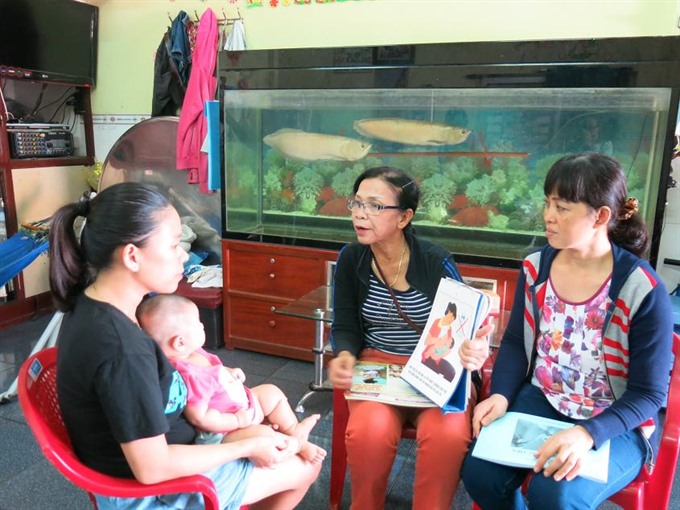 Society
Society

A communication campaign will be launched nationwide from October 16 to 23 in efforts to strengthen community awareness on nutrition safety and malnutrition prevention in people, especially children.
 |
| Health workers instruct mothers to adopt nutrition, safety and malnutrition prevention practices for children in Quy Nhơn City, Central Binh Dinh Province. — Photo syt.binhdinh.gov.vn |
HÀ NỘI — A week-long communication campaign was launched nationwide on October 16 in efforts to strengthen community awareness on nutrition safety and malnutrition prevention in people, especially children.
Organised by the National Institute of Nutrition (NIN), the event aims to celebrate Nutrition and Development Week and World Food Day (October 16).
With the theme "Ensure reasonable nutrition and safety of family meals in the context of climate change", this year’s campaign will focus its activities on encouraging people to develop family production and promote sustainable production and awareness of environment protection.
“Access to essential foods has been always a pressing problem for every household in areas affected by natural disaster and climate change. As a result, children face risks of malnutrition, disease and fatality,” NIN director Lê Danh Tuyên said.
“Priorities will be given to families in provinces and areas affected by disaster and climate change to improve the quality of meals through ready food sources and to raise income for enhancing their quality of life,” Tuyên said.
The campaign will also raise community awareness on a healthy and balanced diet, ensure food hygiene and safety and promote a healthy lifestyle through regular physical exercise to prevent obesity.
During the week, the health departments will collaborate with the agricultural sector to provide guidelines on proper cultivation techniques for farmers and to develop VAC (garden-pond-livestock pen) integrated farming systems, a Vietnamese approach to household production of safe and nutritious food.
NIN experts said an unbalanced diet was among the top causes of malnutrition in the country. In 2015, 24.6 per cent of the country’s children under five were underweight, down 0.3 per cent compared with 2014, while the rate of stunted growth was 14.1 per cent, down 0.4 per cent compared with the previous year. — VNS




